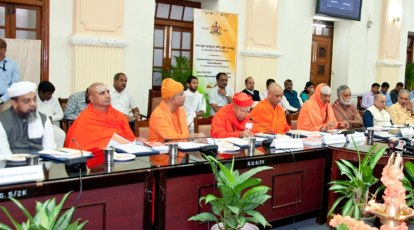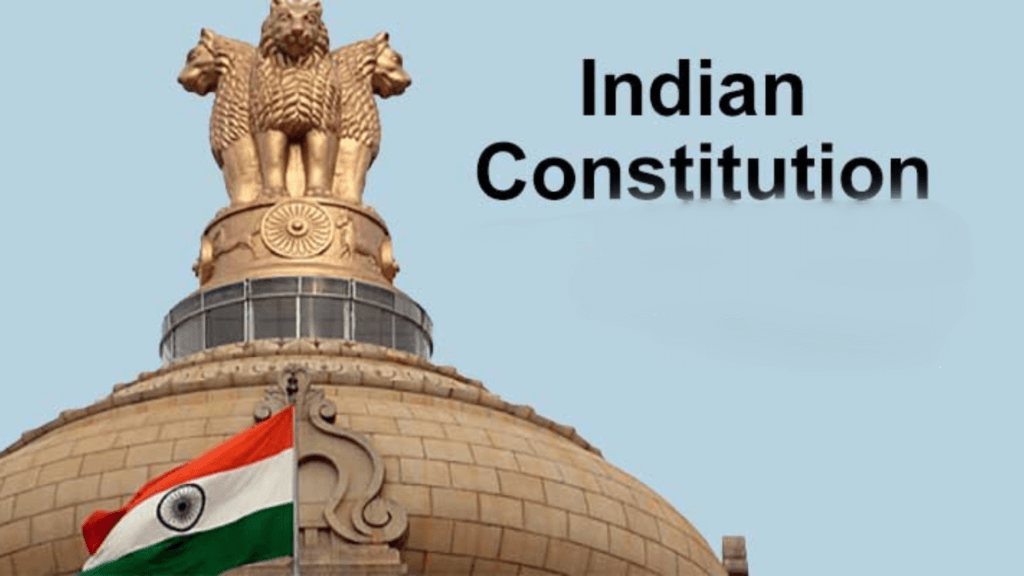The Karnataka School Education Policy (SEP) has placed a renewed focus on ‘Constitutional Value Education’ to instill democratic values and civic responsibility among students. The initiative aims to create an informed and ethically aware generation that respects the Constitution and its guiding principles. The policy emphasizes integrating constitutional teachings into the curriculum at various educational levels. This move comes in response to growing concerns about civic awareness and social harmony. By promoting constitutional values, the state seeks to strengthen unity, uphold human rights, and encourage responsible citizenship among young learners.
Background
The SEP’s focus on constitutional values is rooted in the idea that education must go beyond academic excellence to build socially conscious citizens. Karnataka’s education department has observed a decline in awareness about fundamental rights, duties, and the democratic framework among students. This gap prompted the inclusion of structured lessons on the Preamble, Directive Principles, and the importance of equality, justice, and fraternity. The move is also aligned with the National Education Policy’s emphasis on value-based education. By instilling these principles early, the state hopes to nurture citizens who are not only skilled but also socially responsible.
The State Education Policy (SEP) in Karnataka has introduced a renewed emphasis on integrating constitutional value education into the academic framework, aiming to instill civic responsibility among students. This initiative is designed to familiarise young learners with the principles of equality, liberty, justice, and fraternity as outlined in the Indian Constitution. Education officials believe that introducing these lessons early will nurture a generation that is more aware of its rights and duties, ultimately leading to a more cohesive and responsible society.
A key aspect of this plan involves revising school curricula to include specific chapters and activities focusing on constitutional values. Teachers will receive specialised training to effectively convey these concepts in a way that resonates with students of different age groups. By making constitutional literacy a central part of education, the government hopes to move beyond rote learning and foster critical thinking skills that help students understand the deeper meaning of democracy.
Workshops and seminars will be conducted at district and taluk levels to ensure consistent implementation across the state. These interactive sessions will allow students to engage in debates, mock parliaments, and role-play exercises that highlight the practical application of constitutional principles. Officials argue that such experiential learning will not only make lessons engaging but also strengthen students’ ability to apply these values in real-life scenarios.
The SEP also aims to collaborate with legal experts, historians, and civic educators to develop authentic, accurate, and inspiring content for classrooms. This multi-disciplinary approach ensures that constitutional value education does not remain confined to textbooks but becomes a living, evolving part of students’ educational journeys. Such collaborations are expected to create a richer understanding of India’s democratic foundation.


Curriculum Integration
Under the SEP framework, constitutional education will not be a stand-alone subject but woven into existing courses. History, political science, and social studies will carry dedicated modules on constitutional values, while language classes will feature stories and essays that highlight democratic principles. Special activities such as debates, role plays, and quizzes will also be introduced to make learning interactive. Teachers will receive training to effectively deliver these lessons, ensuring that students grasp both theoretical and practical aspects. The curriculum changes aim to make constitutional learning relatable to real-life situations students face.
Teacher Training and Implementation
To ensure the success of the initiative, the Karnataka government plans to conduct extensive teacher training sessions. Educators will be provided with resource materials, activity guides, and workshops led by legal experts and civic activists. The training will focus on interactive teaching methods that encourage student participation. Teachers will also learn how to address sensitive topics such as diversity, secularism, and equality without bias. This preparation is crucial for translating constitutional values into meaningful classroom experiences that resonate with students from diverse backgrounds.
Impact on Students
Proponents of the policy believe that introducing constitutional education from an early age will have far-reaching benefits. Students will develop a deeper understanding of their rights and duties, fostering respect for law and democratic institutions. This awareness can reduce incidents of intolerance, promote social harmony, and encourage active participation in community and national affairs. Furthermore, such education is expected to enhance critical thinking skills, enabling students to question injustices and engage constructively in societal development. By internalizing these values, the next generation can contribute positively to India’s democratic journey.

Stakeholder Reactions
The SEP’s focus on constitutional values has received mixed reactions from stakeholders. Educationists and civic activists have welcomed the move, seeing it as a timely intervention to counter declining civic awareness. Parents’ associations have also shown support, believing it will make children more disciplined and socially aware. However, some critics argue that the implementation must be carefully monitored to avoid politicization. They stress the importance of keeping the content neutral and inclusive, representing the Constitution’s true spirit without ideological bias. The government has assured that the content will remain non-partisan.
Challenges Ahead
While the vision is ambitious, several challenges could affect its implementation. The first hurdle is ensuring that teachers themselves have a strong grasp of constitutional principles. Resource limitations, especially in rural schools, may hinder effective delivery. Additionally, balancing the already packed syllabus with new content could be challenging for both teachers and students. Addressing these concerns will require continuous monitoring, feedback mechanisms, and possible adjustments to the policy over time. Without adequate resources and commitment, the policy risks becoming a theoretical exercise rather than a transformative initiative.
Legal and Policy Context
The emphasis on constitutional education is consistent with Article 51A of the Indian Constitution, which outlines the fundamental duties of citizens, including respecting the Constitution. It also aligns with the Right to Education Act, which calls for holistic development beyond academics. National bodies like NCERT have also recommended integrating value education across subjects. Karnataka’s SEP adapts these recommendations to the state’s socio-cultural context, aiming to create a model that other states can replicate. This legal and policy backing gives the initiative both credibility and direction for sustainable implementation.
Current Status
The rollout of constitutional value education under the SEP has begun in select pilot schools across Karnataka. Early feedback from these institutions will help refine the approach before statewide implementation. Teacher orientation programs are already underway, and the state is developing assessment methods to evaluate the effectiveness of the lessons. The government plans to review progress periodically, with the possibility of expanding related programs to include civic engagement activities such as visits to courts, legislative assemblies, and community service projects. This phased approach aims to ensure quality and consistency.

Conclusion
Karnataka’s focus on ‘Constitutional Value Education’ represents a forward-thinking approach to nurturing informed and responsible citizens. By integrating constitutional principles into everyday learning, the state hopes to strengthen democratic values and foster social harmony. While challenges remain, the initiative has the potential to transform civic education in the state, provided it is implemented with sincerity and inclusivity. As the program progresses, its success will depend on sustained commitment, adequate resources, and genuine collaboration between educators, policymakers, and the community at large. The SEP could set a precedent for value-based education nationwide.
Community involvement will be another vital component, with local leaders and activists invited to schools to share real-world examples of constitutional values in action. This connection between classroom learning and societal application is seen as crucial for making the lessons impactful. Parents will also be encouraged to discuss these topics at home, reinforcing the importance of active citizenship beyond school walls.
In the long term, policymakers envision that embedding constitutional value education within Karnataka’s SEP will contribute to reducing social conflicts, increasing voter awareness, and promoting inclusivity. The initiative aligns with the broader national goal of creating informed citizens who can uphold democratic traditions while adapting to changing societal needs. By taking a structured, multi-pronged approach, Karnataka aims to set a precedent for other states in promoting civic education.
The Karnataka government’s renewed SEP strategy for constitutional value education comes at a time when civic awareness among youth is being questioned nationwide. Officials argue that instilling these principles in classrooms will counter misinformation and promote critical thinking. By empowering students to understand their rights and responsibilities, the policy aims to build a more participatory democracy. Educationists stress that informed citizens are less susceptible to divisive narratives, making this initiative a long-term investment in social stability and harmony.
To ensure sustainability, the SEP includes a monitoring mechanism that tracks the progress of constitutional value education across all districts. This system will evaluate not just the availability of materials but also the effectiveness of teaching methods and student engagement levels. Annual assessments, surveys, and feedback sessions will be used to fine-tune the approach. Authorities believe that constant evaluation will help the programme remain relevant and impactful in changing social contexts.
Teacher capacity-building remains at the heart of the SEP’s implementation plan. In-service training programmes will equip educators with the tools to handle sensitive topics related to rights, freedoms, and duties. Special emphasis will be placed on practical teaching aids such as multimedia resources, storytelling techniques, and case studies from history and current affairs. This is expected to make the learning process relatable while encouraging students to think independently.
The policy also proposes integrating constitutional value education with extracurricular activities like essay competitions, debates, and cultural programmes. Such initiatives will allow students to express their understanding creatively while deepening their appreciation for democratic ideals. Organisers plan to collaborate with youth organisations to extend these activities beyond schools, giving students opportunities to participate in civic action at the community level.
Looking ahead, the Karnataka government hopes this focus on constitutional value education will not just benefit students academically but also shape their character and worldview. By grounding education in the principles that form the foundation of India’s democracy, the SEP aspires to nurture citizens who value equality, fairness, and justice. Officials believe that if implemented effectively, this programme could become a model for nationwide adoption.
Follow: Karnataka Government
Also read: Home | Channel 6 Network – Latest News, Breaking Updates: Politics, Business, Tech & More

